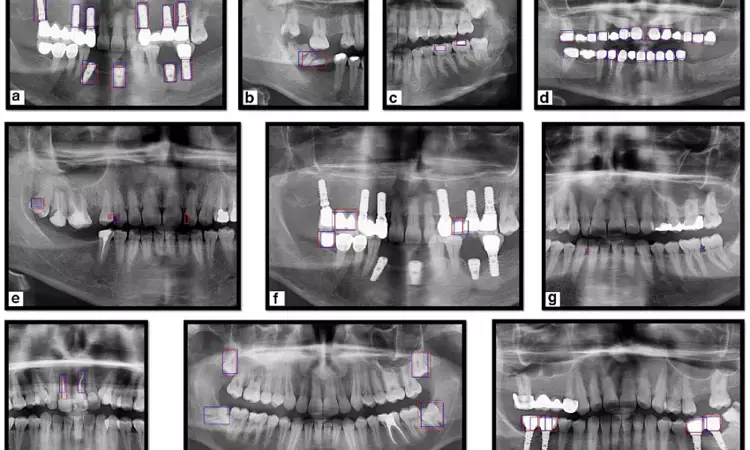- Home
- Medical news & Guidelines
- Anesthesiology
- Cardiology and CTVS
- Critical Care
- Dentistry
- Dermatology
- Diabetes and Endocrinology
- ENT
- Gastroenterology
- Medicine
- Nephrology
- Neurology
- Obstretics-Gynaecology
- Oncology
- Ophthalmology
- Orthopaedics
- Pediatrics-Neonatology
- Psychiatry
- Pulmonology
- Radiology
- Surgery
- Urology
- Laboratory Medicine
- Diet
- Nursing
- Paramedical
- Physiotherapy
- Health news
- Fact Check
- Bone Health Fact Check
- Brain Health Fact Check
- Cancer Related Fact Check
- Child Care Fact Check
- Dental and oral health fact check
- Diabetes and metabolic health fact check
- Diet and Nutrition Fact Check
- Eye and ENT Care Fact Check
- Fitness fact check
- Gut health fact check
- Heart health fact check
- Kidney health fact check
- Medical education fact check
- Men's health fact check
- Respiratory fact check
- Skin and hair care fact check
- Vaccine and Immunization fact check
- Women's health fact check
- AYUSH
- State News
- Andaman and Nicobar Islands
- Andhra Pradesh
- Arunachal Pradesh
- Assam
- Bihar
- Chandigarh
- Chattisgarh
- Dadra and Nagar Haveli
- Daman and Diu
- Delhi
- Goa
- Gujarat
- Haryana
- Himachal Pradesh
- Jammu & Kashmir
- Jharkhand
- Karnataka
- Kerala
- Ladakh
- Lakshadweep
- Madhya Pradesh
- Maharashtra
- Manipur
- Meghalaya
- Mizoram
- Nagaland
- Odisha
- Puducherry
- Punjab
- Rajasthan
- Sikkim
- Tamil Nadu
- Telangana
- Tripura
- Uttar Pradesh
- Uttrakhand
- West Bengal
- Medical Education
- Industry
AI model promising in accurately identifying dental implant systems on low-quality radiographs: Study

AI model promising in accurately identifying dental implant systems on low-quality radiographs suggests a study published in the Scientific Reports.
Most artificial intelligence (AI) studies have attempted to identify dental implant systems (DISs) while excluding low-quality and distorted dental radiographs, limiting their actual clinical use. This study aimed to evaluate the effectiveness of an AI model, trained on a large and multi-centre dataset, in identifying different types of DIS in low-quality and distorted dental radiographs. Based on the fine-tuned pre-trained ResNet-50 algorithm, 156,965 panoramic and periapical radiological images were used as training and validation datasets, and 530 low-quality and distorted images of four types (including those not perpendicular to the axis of the fixture, radiation overexposure, cut off the apex of the fixture, and containing foreign bodies) were used as test datasets.
Moreover, the accuracy performance of low-quality and distorted DIS classification was compared using AI and five periodontists. Based on a test dataset, the performance evaluation of the AI model achieved accuracy, precision, recall, and F1 score metrics of 95.05%, 95.91%, 92.49%, and 94.17%, respectively. However, five periodontists classified nine types of DISs based on four different low-quality and distorted radiographs, achieving a mean overall accuracy of 37.2 ± 29.0%. Within the limitations of this study, AI demonstrated superior accuracy in identifying DIS from low-quality or distorted radiographs, outperforming dental professionals in classification tasks. However, extensive standardization research on low-quality and distorted radiographic images is essential for actual clinical application of AI.
Reference:
Lee, JH., Kim, YT. & Lee, JB. Identification of dental implant systems from low-quality and distorted dental radiographs using AI trained on a large multi-center dataset. Sci Rep 14, 12606 (2024). https://doi.org/10.1038/s41598-024-63422-z
Dr. Shravani Dali has completed her BDS from Pravara institute of medical sciences, loni. Following which she extensively worked in the healthcare sector for 2+ years. She has been actively involved in writing blogs in field of health and wellness. Currently she is pursuing her Masters of public health-health administration from Tata institute of social sciences. She can be contacted at editorial@medicaldialogues.in.
Dr Kamal Kant Kohli-MBBS, DTCD- a chest specialist with more than 30 years of practice and a flair for writing clinical articles, Dr Kamal Kant Kohli joined Medical Dialogues as a Chief Editor of Medical News. Besides writing articles, as an editor, he proofreads and verifies all the medical content published on Medical Dialogues including those coming from journals, studies,medical conferences,guidelines etc. Email: drkohli@medicaldialogues.in. Contact no. 011-43720751


